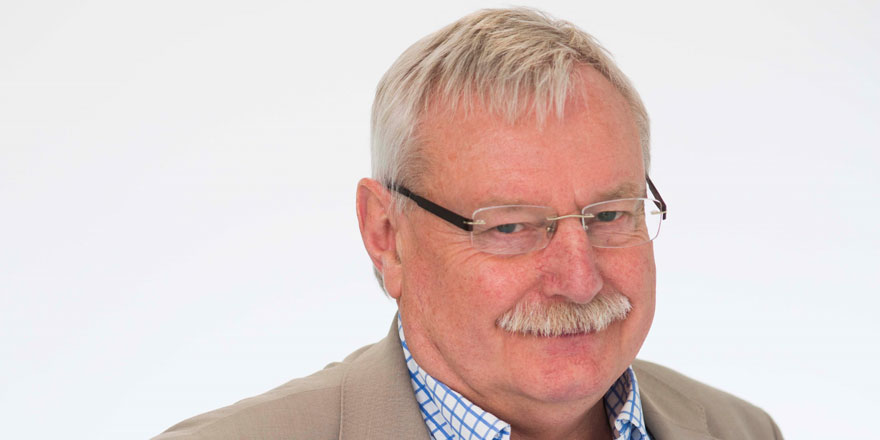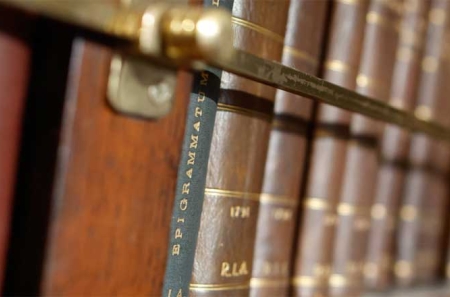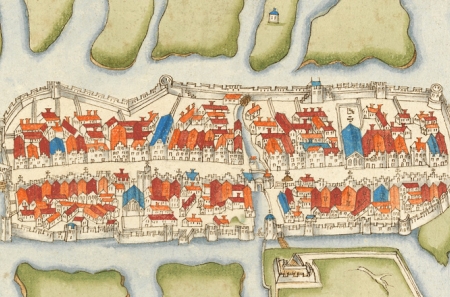Global food and nutrition security: the role of innovation
When
Monday, April 15, 2019, 18:00Where
Tickets

This Academy Discourse by Professor Wayne Powell (SRUC), is part of a discourse series sponsored by Mason Hayes & Curran.
Abstract
The world faces acute food security and malnutrition issues with the population set to reach 10 billion by 2050. Alongside this there are growing challenges from climate change, increased natural resource use and the wider adoption of the "western" diet that puts a greater strain on existing global food production and trade mechanisms. To feed a population of 10 billion 70% more food will need to be produced and distributed - presenting the greatest challenge humanity will face in the twenty-first century. But there is much to be optimistic about. Full application of current innovations across the agri-food sector can form the basis of solutions needed. Key to this is improving productivity whilst mitigating environmental impact. Advances in genetics will play a fundamental role informing breeding programmes to better adapt and improve our food, while advancements in digital technology, like the Internet of Things, will improve our management and application of resources on farm. Coupled with this, however, a paradigm shift must occur with the full adoption of a circular economy, not just in agriculture but in all sectors of the economy; the current 'take, make, waste' attitude towards production is replaced with 'reuse and recycling'. These innovations will not take place without direction and encouragement across all sectors in society, and they must be properly supported to enable industry to rise to meet these challenges. Education and research will be key driving forces behind the heralding of this new era, not only in agriculture, but in all supply chains.
In this way we envisage agri- food at the centre of a circular economy. To achieve this will require new partnerships and an intensification of collaboration between government, business and Universities. This golden triangle will provide the platform for generating new innovation and people with the skills and knowledge to use this innovation in creative ways. This approach will underpin not only future food and nutrition security but the Sustainable Development Goals (SDGs) which are a global expression of futire sustainability.
About the speaker
Wayne Powell is Principal and Chief Executive of Scotland’s Rural College (SRUC).
He has shown a life long commitment to the application of cutting edge science to deliver practical benefits for agriculture and the rural economies of the developed and developing world. His early work was in theoretical quantitative genetics and laid a practical foundation for the deployment of new technologies in plant breeding. More recently, his research interests are at the interface of genome science, plant breeding and conservation of genetic resources, with a strong focus on ‘public good’ outcomes.
Professor Powell’s leadership experience spans the Public, Private and University sectors, with a strong International focus. He is a Fellow of the Learned Society of Wales and the Royal Society of Edinburgh.
Wayne graduated in Agricultural Botany from University College of Wales, Aberystwyth (1974) and went on to do a Postgraduate Certificate in Education (1975) and then a MSc in Genetics and Plant Breeding (with Distinction, 1980) there. He then gained a PhD in Quantitative Genetics (1985) and a DSc in Plant Genetic Manipulation (1993) from University of Birmingham. His external roles include membership of the Science Advisory Council of DEFRA and Convenor of the Research and Knowledge Exchange Committee of Universities Scotland.
He has published over 290 refereed papers and has an H index of 82 (https://scholar.google.co.uk/citations?user=F1JYd9UAAAAJ&hl=en&oi=ao)
Click here to read our Discourse Data Protection Statement
Click here to read our Transparency notice in relation to photographing and filiming at discourses.



